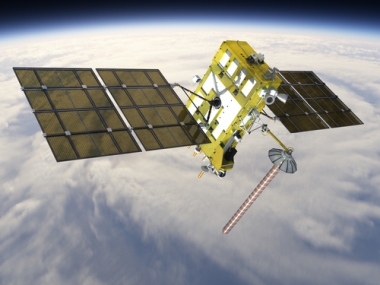Hopefully every day all of us find out something new that is really interesting. Today should be such a day for most of us, as it was for me, when I was made aware of two new things. First was the fact that on April 2, all of the 24 GLONASS satellites—which comprise Russia’s equivalent of the GPS system—actually failed simultaneously and were inoperable for roughly 13 hours, and that this did not make the TV news rounds or appear on virtually any of the tech press circuits. The second thing I learned—and this is how I was informed about the first—is that there is an Australian company, Locata, which has a terrestrial solution to deal with such potentialities and can provide GPS for those hard to reach places.
"Bozhe Moy!" aka “Oh my God!” in Russian
The lack of access to the GLONASS system, to say the least, is a non-trivial matter. GLONASS’s footprint provides satellite-based location capabilities that represent about one-half of the world’s operational global navigation satellite constellations. And, with satellite data communications, for timing synchronization and GPS now serving as a mission-critical under pinning for financial services, communication and electric utility operations, shipping, logistics, air traffic control and even advanced agricultural monitoring capabilities, even a little down time is a big deal.

Image via Shutterstock
As the sub-headline says, this was a true “OMG” happenstance. Unfortunately, thus far the Russian government has not been forthcoming as to what happened, making this all the more reason for concern.
Indeed, as Locata points out, it “and others, such as the Resilient Navigation and Timing Foundation (RNTF) in Washington, D.C., have tirelessly highlighted the need for redundant terrestrial systems that will back up expensive, vulnerable, and aging global satellite navigation constellations while simultaneously providing the local control and resiliency that satellite-based systems simply cannot deliver.”
The company goes on to cite Professor Chris Rizos of the School of Civil and Environmental Engineering at the University of New South Wales. "This catastrophic failure of one of the world's two global satellite navigation constellations is a wakeup call for all of us," said Rizos. "We ignore the possibility of these 'Black Swan' events at our own peril."
A backup and augmentation for GPS
Enter Locata. Wielding a portfolio of 123 granted patents, it has invented a terrestrial positioning network that the company says can function as local, ground-based replicas of GPS, and are best thought of as “GPS hotpots,” since they are integrated with GPS. In fact, the company is careful that people not view this as a GPS replacement but rather as an interesting augmentation that can be used not just in disaster recovery scenarios on a local basis but also, as noted, for extending highly accurate GPS in hard to reach places like congested urban areas and indoors.
If you are technically inclined and wish to learn more, you can download the company’s technology brief on how they do that thing they do. I can say that one of the most impressive things given the importance of very precise synchronized timing of seemingly everything that is important is that Locata is apparently the first company that can provide synchronization across a network without relying on an atomic clock.
The company has been awarded a "sole-source" contract by the U.S. Air Force (USAF) to provide Locata's terrestrially based alternative positioning for military applications where GPS has been completely jammed. The first wide-area Locata system is being deployed now at the famed White Sands Missile Range in New Mexico. The USAF demonstrated that the White Sands Locata network delivers what has been independently described as "science fiction levels of performance" over a 2,500-square-mile area. The Locata system positions aircraft flying up to 35 miles away to an accuracy of better than six inches.
The theme at the recently concluded Mobile World Congress (MWC) in Barcelona was “What’s Next.” Locata seems to be a place to look for the answer, and the (pardon the expression) crash of the Russian satellite constellation really should serve as a wake-up call that as with all computing and communications systems having a backup capability is essential.
Edited by
Alisen Downey